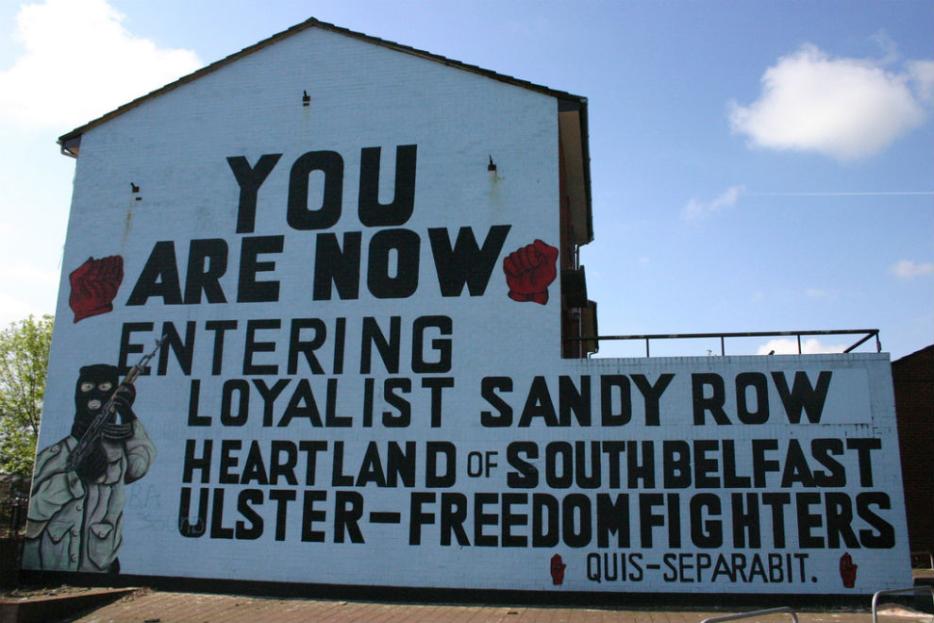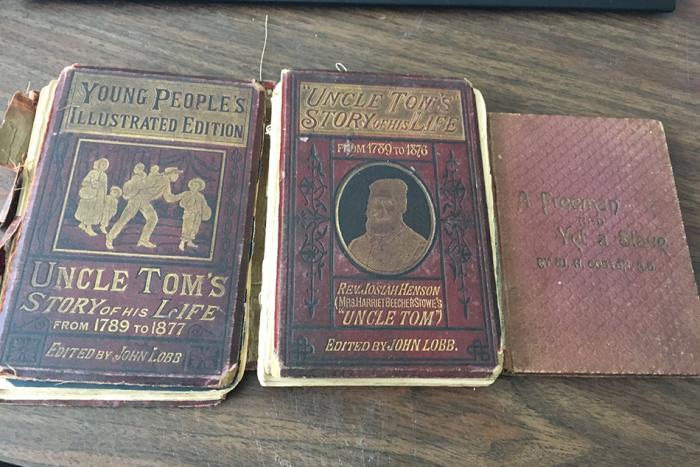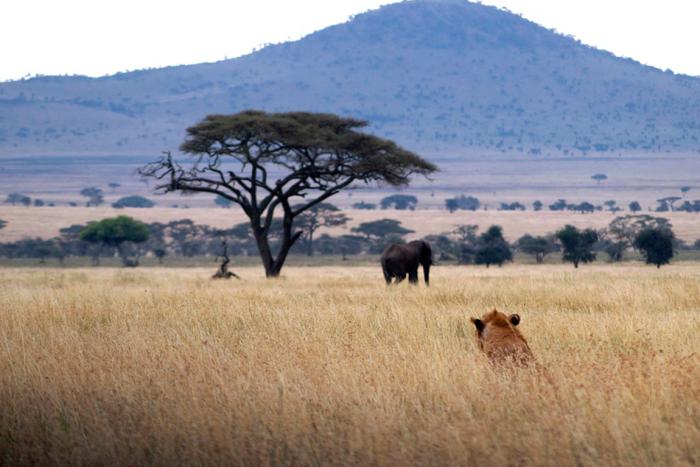“Two buckets were easier carried than one. I grew up in between.”
-Seamus Heaney
On Tuesday, June 21, I sat in my apartment and smiled to myself as I watched Northern Ireland play to a respectable 1-0 loss against defending World Cup champions Germany. Fans and players spoke to the press in joyous voices as it became clear the team would get through to the group stage for the first time ever. Some spoke with Belfast accents—accents like my father and brothers have—and I swelled with pride as I read the next day about how the Northern Irish fans stayed and sang their anthem, “Will Grigg’s on Fire,” long after the match was over and the winning German fans had left.
The next day, I sat by myself in an Irish bar in Montreal to watch the Republic of Ireland play for their tournament lives against another footballing power, Italy. An American consulate worker in the bar, perhaps out of pity, bought me shots as I watched the Irish miss chance after chance. But then, in the 85th minute, joy. Wes Hoolahan put a perfect ball into the box, right where Robbie Brady had placed his head, and the ball obligingly bounced off Brady’s head past the Italian keeper for the game winner. 1-0 victory.
The Republic of Ireland and Northern Ireland were through to the knockout stage. I wobbled home as happy as I’d ever been watching football. For the first time in my life, I was carrying two buckets.
While I still lean toward the Republic’s team, and always will, during the early stages of the UEFA European Football Championships in June this year, I felt entirely comfortable cheering and rooting for both of the Irish teams.
It wasn’t easy to get here, though.
*
I was born in Belfast in the late ‘80s, during the Troubles. While I primarily grew up in the United States, I spent significant portions of my childhood in the city. For me and for everyone else, football in Belfast is coded. Teams are Republican or Loyalist, Catholic or Protestant, Irish or British. During the Troubles, there was even a euphemism about football and sectarianism: Which foot does he/she kick with? Translation: is he/she Catholic or Protestant? A Troubles-era Community Relations Council poster asks if it really matters what foot you kick with. The language that would be almost meaningless to an outsider.
There are dozens of embedded codes, signifiers, and shibboleths that it would take a tourist years to master. But children in Belfast know them at an early age.
When I was a child, Windsor Park, Northern Ireland’s home pitch, was one of many areas coded in my head as unsafe for Catholics like me. The Northern Ireland Supporters Club in Shaftesbury Square, just at the edge of the staunchly loyalist Sandy Row neighborhood, was another place I would never have ventured into as I passed by it on my walk into the city centre. The two flags associated with the team are the Union Jack and the Ulster Banner, the latter being the flag of the Northern Irish state. As a young child these flags frightened me, and I associated them with the masked gunmen in the Loyalist murals that were often near by. I am sure that young children from Protestant backgrounds felt reassured and secured when surrounded by these flags, and frightened when they saw the Irish Republican flags that comforted me.
My brothers have never seen British soldiers and armored vehicles patrolling the streets of their city.
On October 30, 1993, Loyalist gunmen from the paramilitary group the Ulster Defence Association went into a bar in the town of Greysteel and opened fire, killing eight. The UDA claimed the attack was in retaliation for an Irish Republican Army bomb that had killed 10 and injured 57 in a Belfast fish and chip shop a week previously.
At a World Cup qualifying match in Windsor Park between Northern Ireland and the Republic of Ireland in 1993 that took place on my fifth birthday, a surgical strike by Northern Ireland’s Jimmy Quinn put the North up 1-0. There were reports that Northern Ireland fans chanted “Greysteel seven, Ireland Nil.” (In some accounts, the chant is eight.)
The Republic equalized in the match minutes later, and qualified for the ‘94 World Cup in America. In that World Cup, Ireland played Italy in the group stages before 75,000 in Giants Stadium in New Jersey, beating them 1-0 from a header from Ray Houghton in the 11th minute. Back home in Ireland, in a small town called Loughinisland in County Down in the North, Loyalist gunmen burst into a pub and shot dead six people while they watched the proudest moment in Republic of Ireland history up to that point.
Such was the cloud of violence that hovered over Irish football in the 1990s.
*
My 11-year-old brother Niall lives in Belfast, and was born seven years after the signing of the Good Friday Agreement (GFA), which brought an end to the Troubles. The Agreement mandates that the largest Catholic political party must share power in coalition with the largest Protestant party. This has effectively brought Sinn Fein (the political wing of the IRA) into government with the largest Protestant parties, while ensuring that British troops would no longer patrol the streets of Northern Irish towns and cities. The GFA is an agreement amongst political parties in Northern Ireland, and is also a sovereign treaty between the United Kingdom and the Republic of Ireland, registered with the United Nations. It has been cited as offering lessons to any future settlement in Israel and Palestine.
Both the complexity of Irish identity, and football, are part of Niall’s being. The sport is interwoven into his DNA in ways that are perhaps specific to 11-year-olds. Niall supports the Republic of Ireland’s team, and thinks of himself as Irish, as do most of his friends. When I asked him why he supported the Republic, even though he lived in Northern Ireland, he told me that it was because of the Troubles.
But this year, he watched all the games for both the Republic and the Northern team, and told me that if the Republic team were knocked out before the Northern team, he would root for Northern Ireland. Same as me. (He still leans towards the Republic, though, because when the Northern Ireland team sings “God Save the Queen” before their matches, he knows—like I know—that he has no Queen.)
That flexibility of fandom that we share—native to him, unfamiliar to me—is the result of 18 years of peace in Northern Ireland. The confusingly named Irish Football Association, which governs Northern Irish football, has made admirable strides in combatting the sectarianism previously associated with the team. The Northern Irish manager is a Catholic. Mostly though, this flexibility is of two factors. First, the guns and bombs are silent. There are no more Greysteels or Loughinislands. My brothers have never seen British soldiers and armored vehicles patrolling the streets of their city. (Here I do not mean to posture as an archetypal Belfast war child. The time I spent in Belfast during the Troubles was in a relatively middle-class, mixed, and safe neighborhood. I do remember the soldiers and their guns, though.)
The second factor that allows for our flexibility is that the political arrangements created by the Good Friday Agreement enshrine a between-ness for the people of Northern Ireland. You can consider yourself Irish, or British, or both, or only Northern Irish, and are still entitled to equal treatment under the law. One can have either an Irish or British passport, or both. Even if you have only an Irish passport, you are still entitled to use the British National Health service. The border between the Republic and the North is almost non-existent. There are no customs checkpoints and there is no passport control.
Football players likewise could come and go. Martin O’Neill manages the Republic team, but was born in the North. Several of his players are Northern. Michael O’Neill, the Northern manager, previously managed a club team in the Republic. Both sets of fans were lauded for the way they behaved themselves this year in France during the European Championship. A French sports magazine carried the headline “Pour mettre l’ambiance, l’Irlande est unifiée.” To set the mood, Ireland is united. Sounds good to me.
That was on Wednesday, when both teams qualified for the knockout stage. On Friday, we woke up to a United Kingdom that had voted to leave the European Union. Even though Northern Ireland voted by 56 percent to remain in the EU, it may be dragged out by voters who live in England and Wales.
To say that there is anxiety in Northern Ireland over the Brexit would be an understatement. The tendency in English (as opposed to British) politics that finds itself invigorated by the Brexit vote either ignores Northern Ireland completely, or is hostile to the foundations of the society built there after the end of the Troubles.
Michael Gove, who while losing the Tory leadership contest is set to wield considerable influence in the next government, wrote in 2000 that the Good Friday Agreement was a “Trojan horse” for the “vision of human rights which privileges contending minorities at the expense of the democratic majority.” Gove felt the peace agreement “demeans traditional expressions of British national identity. And it privileges those who wish to refashion or deconstruct that identity.”
Theresa May, the current front runner in the Tory leadership contest, has called for the UK to leave the European Convention on Human Rights, which underpins the Good Friday Agreement. Amnesty International’s Northern Ireland director told the Belfast Telegraph that May’s “proposal is not just foolish, it is downright dangerous. To undermine an international peace agreement, on which 18 years of peace has been based, is reckless in the extreme." A legal analysis by human rights attorneys from Doughty Street Chambers paints a bleak picture for the future of the Good Friday Agreement under Brexit.
As it always has been, the central issue going forward will be the border itself. Because the Republic will remain an EU country, there could exist a land border on the island of Ireland between the EU and the UK. Will there be passport controls? What of those who live in the North but hold only Irish passports?
Identities in the North may further soften, if people who traditionally conceive of themselves as British come to the conclusion that they have more in common with the Irish in the EU than with the English who have exited. Already there have been reports of Belfast post offices running out of applications for Irish passports.
But if the border is securitized and partition is further entrenched, identities in Northern Ireland may harden, leaving no room for the between-ness of my brother’s post-Troubles generation. The guns of Belfast have been silent for 18 years, largely because of the idea of a “shared society,” a between-ness grounded in European human rights law.
The politics of Brexit has no room for between-ness. You are British or you are not, it declares.
I read the news about Brexit on the Saturday morning as Northern Ireland were knocked out by Wales. The Republic of Ireland was knocked out of the European Championship by France on the Sunday morning. In the Montreal Irish bar where I watched, the French fans had corrupted the Northern Irish song. “Griezmann’s on fire,” they sang, for the French striker who had put two magnificent goals past the Irish keeper. I was sad as I left.
The Michael Goves, Nigel Farages, the Boris Johnsons have no time for a comfortably Irish child like my brother, carrying two buckets. It is his world they have tampered with, not their own.






